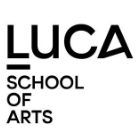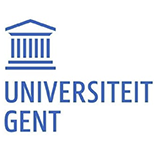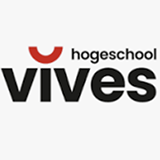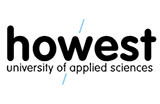Detailed introduction of Saint-Louis University, Brussels:
Introduction
Saint-Louis University, Brussels is a public university located in Brussels, Belgium. It focuses on the humanities and social sciences, offers a wide range of undergraduate, master's, advanced master's and doctoral programs, and has many lifelong learning and executive programs, attracting nearly 2,800 students from about 60 countries.
Overview
Student size: about 4,400 students from more than 90 countries.
Course settings: Undergraduate and graduate courses covering philosophy, literature, history, art history, law, economics, sociology, political science, communication, translation and other disciplines.
History and establishment time
The school was founded in 1857. Its predecessor was Institut Saint-Louis, which was established in Brussels in 1838. It was a diocesan secondary school at the time and gradually developed into a university. It became a recognized autonomous university in 1891 and was further confirmed in 1929. During this period, it has undergone many adjustments and changes in departments and faculties. In 2013, it was renamed Université Saint-Louis - Bruxelles.
School Strength
Teaching Staff: With 403 academic staff, the faculty not only has solid professional knowledge, but also actively participates in many domestic and international research projects. Some teachers have high reputation and influence in related academic fields and can provide students with high-quality teaching and guidance.
Teaching Resources: As a university with a long history, it has accumulated rich teaching resources. The school has a well-equipped library with rich collections, covering books, journals and research reports in many fields such as humanities and social sciences, which provides strong support for students' learning and research. In addition, the school is also equipped with advanced teaching equipment and laboratories.
Institutional Nature
The school is a public university affiliated to the French-speaking area of Belgium with a Roman Catholic background.
Educational Philosophy
Focus on cultivating students' cultural openness and international vision, emphasizing the combination of theory and practice, and helping students master solid professional knowledge and skills by providing rich and diverse courses and practical opportunities, improving their comprehensive quality and competitiveness, so as to better adapt to the social needs in the context of globalization, and focusing on cultivating students' sense of social responsibility and innovative spirit.
Key Laboratories and Disciplines
Key Laboratories: The school has multiple research centers, such as Social Scientific Research Center, European Research Center, etc. These research centers have carried out in-depth research in their respective fields and made important contributions to academic research and social development.
Key disciplines:
Philosophy and Humanities: This discipline has a high reputation in Belgium and even in Europe. It focuses on cultivating students' philosophical thinking, cultural literacy and critical spirit. It covers multiple professional directions such as philosophy, literature, history, and art history, providing students with a platform for in-depth exploration of human thought and culture.
Law: The law major has a long history, and its teaching and research levels are in a leading position in Belgium. It has cultivated many outstanding legal talents. Its curriculum covers legal theory, legal history, constitution, civil law, criminal law, international law and other fields, focusing on cultivating students' legal awareness and legal practice ability.
Economic, Social and Political Sciences: This discipline focuses on hot issues and development trends in the economic, social and political fields. Through a combination of theoretical teaching and practical research, it cultivates students' ability to analyze and solve problems. Professional directions include economics, sociology, politics, communication, etc., laying a solid foundation for students' career development and academic research in related fields.
Department
The school has 4 faculties, namely the Faculty of Philosophy, Literature and Humanities, the Faculty of Law, the Faculty of Economics, Social Sciences, Politics and Communication Sciences, and the Mary Harps Faculty of Translation and Interpretation.
Ranking
Ranked 146th in the European University Rankings - Western Europe in 2025.
Ranked 7668th among 14,131 universities in the world, 1706th among 2785 universities in Europe, 30th among 63 universities in Belgium, and 9th among 19 universities in Brussels.
Expenses
Tuition fees: In the 2021-2022 academic year, the standard annual tuition fee for full-time students is 835 euros, which applies to students from Belgium, EU member states, and non-EU countries who are considered equivalent to Belgian students; non-EU students who have not been assimilated may have their tuition fees increased, such as an additional 4175 euros in the 2021-2022 academic year. The tuition fee is EUR 100, but if the student receives a study grant in the French-speaking region of Belgium, the tuition fee can be reduced to 0 EUR, and the tuition fee can be reduced to 374 EUR for students who enjoy the tuition fee reduction. The tuition fee for students who receive the Minerval grant is 485 EUR.
Other expenses: In addition to tuition fees, students also need to consider living expenses such as accommodation, transportation, textbooks, and meals. These expenses will vary according to different lifestyles and needs.
Campus
Campus environment: The main campus is located on the northern edge of the center of Brussels. The campus has a strong humanistic atmosphere, beautiful surrounding environment, convenient transportation, and rich cultural activities. Students can fully enjoy the various advantages brought by Brussels, a multicultural metropolis, such as museums, art galleries, theaters and other cultural venues, providing students with a wealth of choices for extracurricular life.
Campus facilities: The school has modern teaching facilities and complete living facilities, including teaching buildings, libraries, laboratories, computer rooms, gymnasiums, student dormitories, restaurants, etc., providing students with good learning and living conditions. Students can use the school's various facilities and resources to meet their needs for learning, research and life.
-

Artesis Plantijn Hogeschool Antwerpen
-

LUCA School of Arts
-

Ghent University
-

Vrije Universiteit Brussel
-

Katholieke Hogeschool VIVES
-

Hogeschool West-Vlaanderen
-

Antwerp Management School
-

University of Antwerp
-

Hogeschool Gent
-

Karel de Grote-Hogeschool
-

Mesoamerican University
-

Istmo University
-

Mariano Galvez University of Guatemala
-

Regional University of Guatemala
-

Galileo University
-

Francisco Marroquín University
-

Rafael Landívar University
-

University of the Valley of Guatemala
-

University of San Carlos of Guatemala
-

Technological Institute of Tlaxcala Plateau
-

Golfo University
-

Technological University of South Sonora
-

Technological University of Huejotzingo
-

Tizimín Institute of Technology
-

Chilpancingo Institute of Technology

